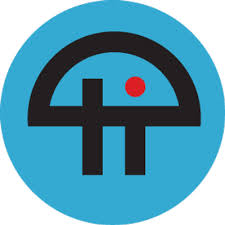twit
英 [twɪt]
美 [twɪt]
- n. 挖苦;嘲笑
- vt. 嘲笑;责难;愚弄
星级词汇:

英语词源
- twit
-
twit: Twit was originally, and still is, a verb, meaning ‘taunt’ [16]. It is a shortened version of the now defunct atwite. This went back to Old English ætwītan, a compound verb formed from the prefix æt-, denoting ‘opposition’, and wītan ‘reproach’. It is not altogether clear whether the noun twit ‘fool’ is the same word. There is an isolated example of what could be twit ‘fool’ recorded from the early 18th century, but it did not really begin to proliferate as a mild term of abuse until the 1950s.
Semantically, the connection is plausible – a ‘fool’ could be a ‘person who is taunted’ (presumably for being foolish) – but an alternative theory is that it is an alteration of twat [17]. This originally meant ‘cunt’, and is not recorded as a term of abuse until the 1920s. It is not known where it came from. (It was, incidentally, the object of one of the more ludicrous misapprehensions in English literature.
There is a passage in Vanity of Vanities 1660 that reads ‘They talked of his having a cardinal’s hat, they’d send him as soon an old nun’s twat’. Robert Browning took ‘twat’ as meaning some item of nun’s clothing, and so wrote in his Pippa Passes 1841 ‘Sing to the bats’ sleek sisterhoods full complines with gallantry: Then, owls and bats, cowls and twats, monks and nuns, in a cloister’s moods, adjourn to the oakstump pantry!’).
- twit (v.)
- "to blame, reproach, taunt, upbraid," 1520s, twite, shortened form of Middle English atwite, from Old English ætwitan "to blame, reproach," from æt "at" + witan "to blame," from Proto-Germanic *witanan "to look after, guard, ascribe to, reproach" (cognates: Old English wite, Old Saxon witi, Old Norse viti "punishment, torture;" Old High German wizzi "punishment," wizan "to punish;" Dutch verwijten, Old High German firwizan, German verweisen "to reproach, reprove," Gothic fraweitan "to avenge"), from PIE root *weid- "to see" (see vision). For sense evolution, compare Latin animadvertere, literally "to give heed to, observe," later "to chastise, censure, punish." Related: Twitted; twitting. As a noun meaning "a taunt" from 1520s.
- twit (n.)
- "foolish, stupid and ineffectual person," 1934, British slang, popular 1950s-60s, crossed over to U.S. with British sitcoms. It probably developed from twit (v.) in the sense of "reproach," but it may be influenced by nitwit.
权威例句
- 1. He reportedly called her "a lying little twit".
- 据说他称她是“满嘴谎话的可恶白痴”。
- 2. Between you and me I think that new supervisor is a twit.
- 我们私下说,我认为新来的主管人是一个傻瓜.
- 3. He's an arrogant little twit!
- 他是个自高自大的笨蛋!
- 4. Little Twit blasted me on his new cd, why?
- 他在新专辑中攻击我?为什么?
- 5. Stop messing around, you silly twit!
- 别胡闹了, 你这个蠢货!
